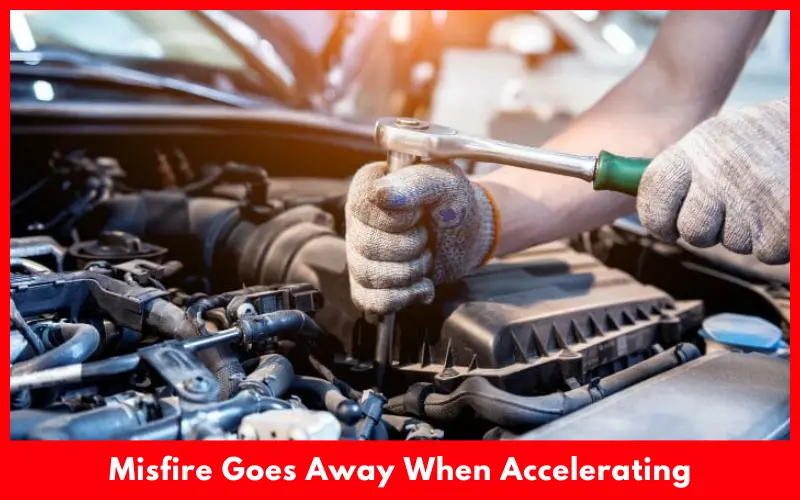Car engine misfires due to faulty spark plug, ignition coil or fuel injector that needs repair to fix misfiring problem. But if a car engine misfire goes away when accelerating, lean fuel mixture can cause this issue, particularly at low RPMs.
Car engine may also misfire when idling due to a vacuum leak, faulty fuel injector or damaged coil pack that may go away after accelerating. If you ignore this problem, it can increase fuel consumption, destroy the coil or damage engine completely.
Article Summary
Why Car Engine Misfire Goes Away When Accelerating?
If car engine misfires when stop and it goes away after accelerating, it can be result of an imbalance in fuel ratio at low RPMs. When driving slowly, idling, or at low RPMs, engine burns less fuel and runs under low load conditions.
At this condition, engine can misfire due to a lean fuel mixture, faulty spark plug, or loss of compression. When you accelerate, engine starts getting more fuel for burning at higher RPMs. It makes the misfire less evident.
Reasons for Car Engine Misfiring At Low RPMs or Engine Idling
Below are some reasons that cause engine misfire at low RPMs:
1. Vacuum Leak
If engine only misfires at idle but runs fine everywhere else, vacuum leak can be responsible. Gasket between cylinder and intake manifold can get leak due to a reduction in vacuum pressure and cause a lean air-fuel mixture.
Vacuum leaks also allow excess air to enter inside combustion chamber and it can make misfire at low RPMs.
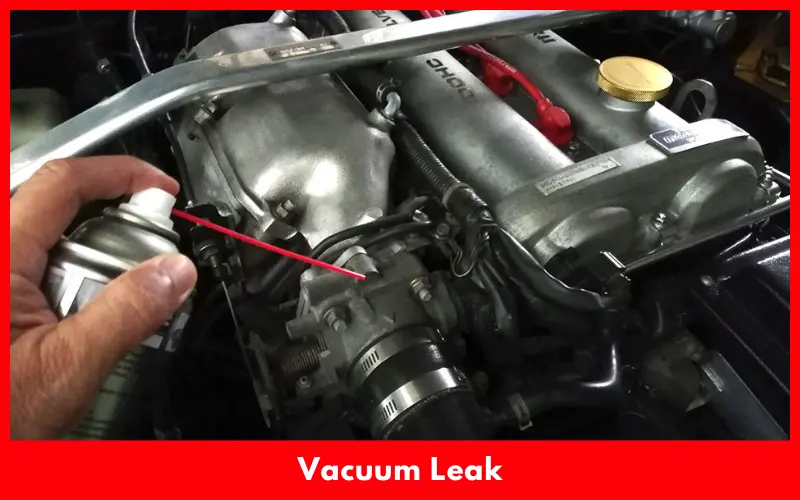
2. Faulty Fuel Injectors
Dirty fuel injectors can’t spray enough fuel compared to their counterparts and cause a single-cylinder lean mixture. It can make lean misfire when running the engine at lower RPMs that can go away when accelerating.
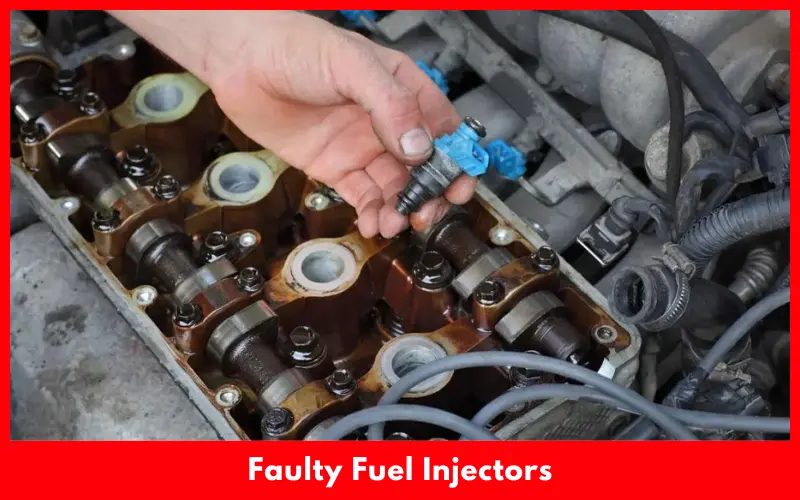
Fuel injectors can get dirty, clogged or worn due to collecting residue from shaped fuel filters and dirt from engine air. A faulty fuel injector can’t deliver right amount of fuel to combustion chamber and causes a misfire which becomes more noticeable at lower RPMs.
But at higher RPMs or when you accelerate, engine gets more fuel to work harder which makes the misfire less noticeable.
3. Damaged Coil Pack
The coil pack sends an electrical signal to spark plug to burn air-fuel mixture in cylinders. If coil pack gets damaged due to bad spark plugs or plug wires, it can cause spark plugs to misfire at wrong time. It becomes more noticeable at lower RPMs as spark plug firing increases engine shaking.
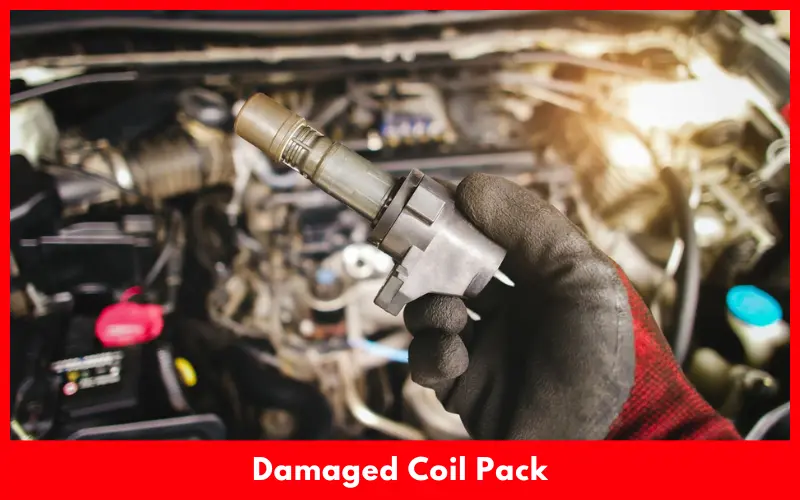
Conversely, the misfire may become less noticeable when accelerating as spark plug fires quickly at higher RPMs. This reduces car engine shaking and makes misfires less noticeable. Faulty coil packs can also cause an engine to misfire all the time.
4. Defective Throttle Body
Throttle body controls the air entering into engine. When the throttle body goes bad due to collecting dirt and grime, it causes problems in air-fuel ratio. If so, an imbalanced air-fuel ratio can trigger misfires and reduce engine performance. So, service throttle body as soon as possible.
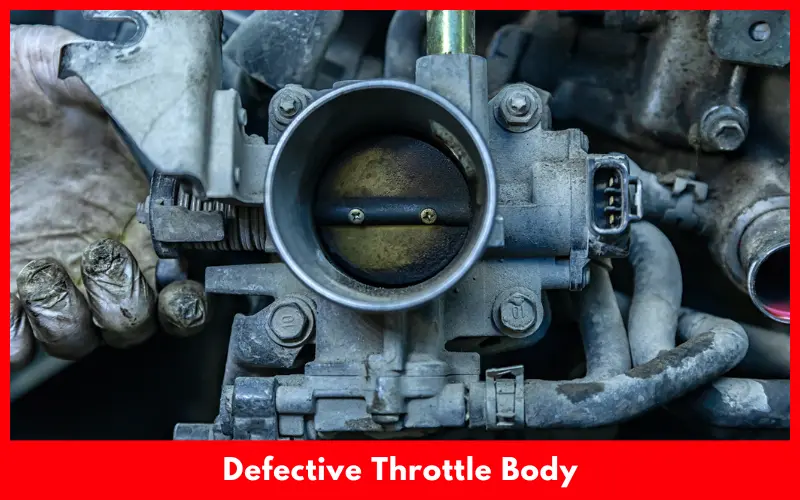
5. Worn-Out Spark Plugs
Spark plug ignites the air-fuel mixture in engine’s cylinder. It can fail and misfire due to a dirty air filter, driving excessively at low speed, or dirty fuel injectors. Spark plug gets a higher amp from the alternator when driving at higher RPMs.
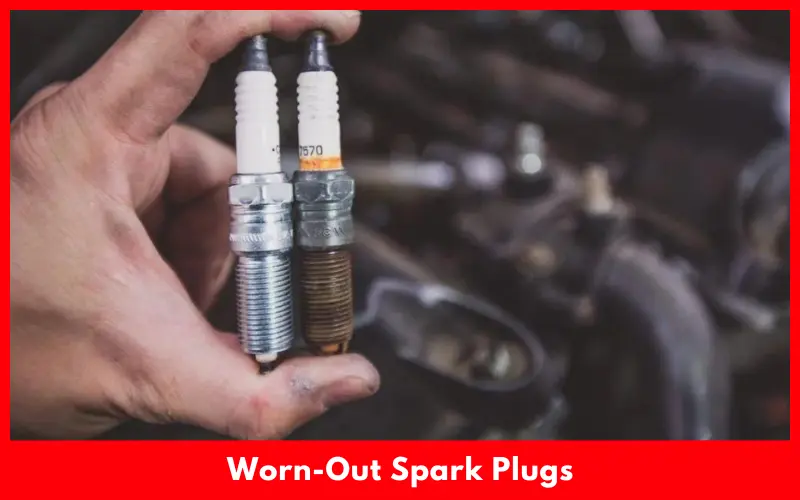
Hence low RPMs engine misfire goes away when accelerating or at high RPMs. Spark plug can also misfire due to collecting oil from leak gasket cover
6. Dirty Air Filter
Engine can misfire and vibrate violently at lower RPMs due to dirty and clogged air filters. The reason is that clogged air filters allow oil to burn improperly and create misfires.
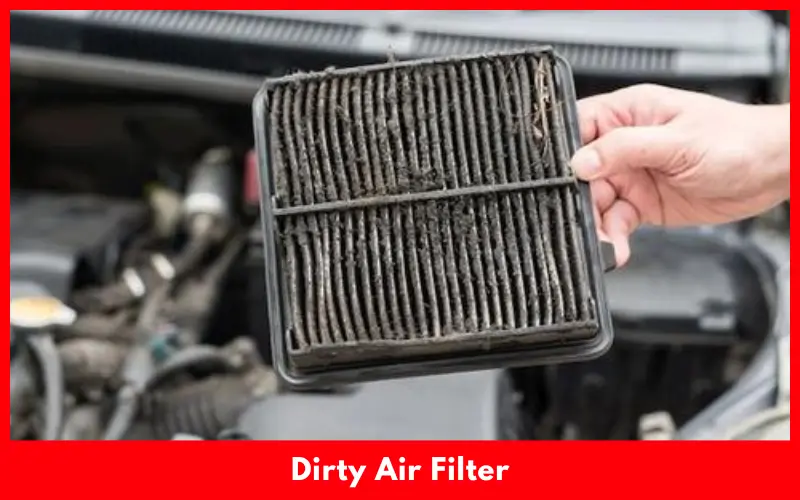
Air filters experience dirt problems due to extreme outside temperatures as it allow more air to push through the AC system. Clogged air filters can also cause car jerks when idle and engine misfires.
How To Fix Engine Misfire At Low RPM Issue?
Engine misfire is a serious problem and plenty of faulty parts can cause this issue. So if your engine misfires, don’t ignore this problem even if it goes away when accelerating. Instead, follow these steps to identify the exact underlying problem so you can act accordingly to fix engine misfire problem.
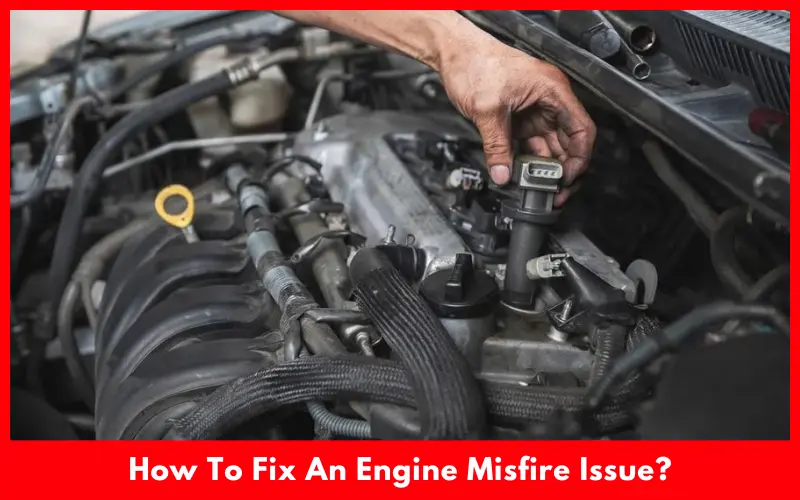
1. Run Scanner Tool
When engine misfires, ECU should register DTC code and activate check engine light. So scan your vehicle using an OBD II scanner to determine the exact root cause. In this case, you may have P0100-P0104, P0300-P0308, or P0171-P0172 codes for faulty airflow sensors, misfire in cylinders, or lean fuel mixture respectively.
2. Inspect Spark Plug
ECU won’t register DTC for misfire particularly if it’s an intermittent issue. if so, you’ll need to inspect the vehicle physically and you can start by checking the spark plug. If spark plug gets damaged or becomes old, you’ll need to replace it. You can also remove spark plug and ignition coil and clean them to see if it works.
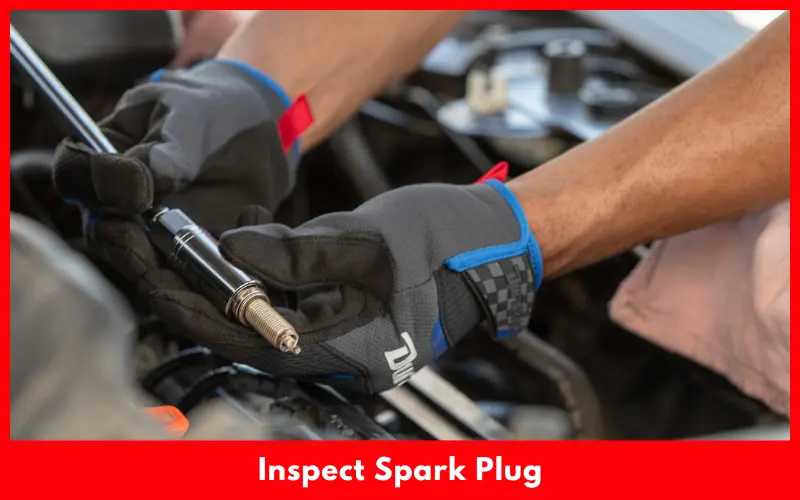
3. Check Compression
Check the fuel, air, and spark plug system by performing a compression test. If you find a low compressor, check timing belts, pistons, valves and other engine components and replace the faulty part.
4. Check Coil Pack
If compression system has no problem, check the resistance of coil pack using a multimeter. If you find low resistance, replace the coil pack.
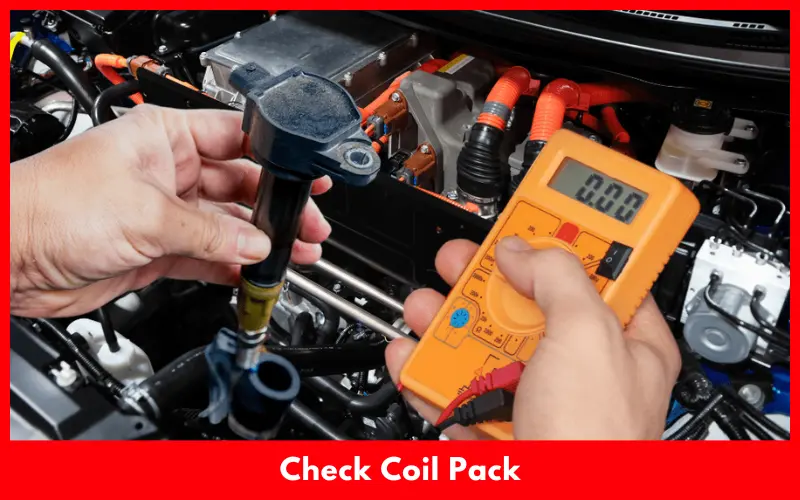
5. Inspect Vacuum Leak
With engine idle, use a flammable spray to detect vacuum leaks. After spraying around the intake manifold, notice if engine speed increases. Repair vacuum leak if speed rises.
6. Clean Fuel Injector
Spray cleaner directly into fuel system and around fuel injector to break down carbon deposits and other residue to thoroughly clean it. If the engine misfire problem remains, replace fuel injector.
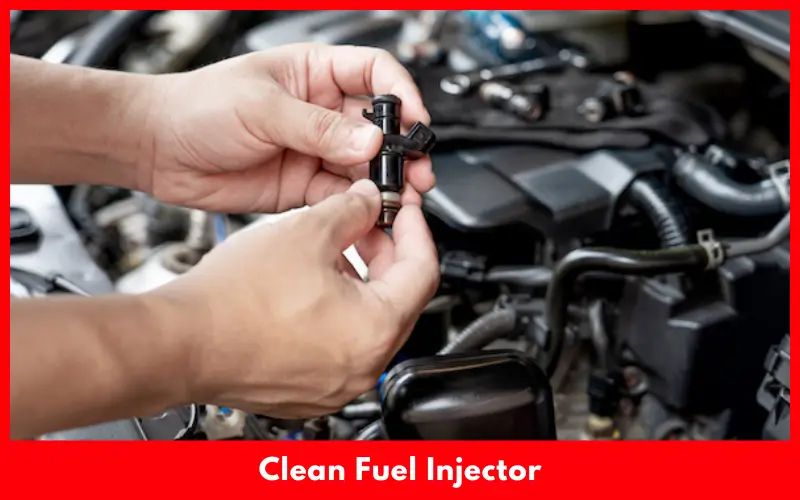
Cost of Fixing Engine Misfire Problem?
On average, it can cost around $100 to $300 to fix engine misfire problems at low RPMs. The exact cost varies depending on car’s make and model and the root of misfire problem. For example, if a faulty spark plug or its wiring causes a misfire, it’ll cost $100 to $300 to fix the issue.
Carbon ignition spark plug replacement cost is $100 to $250 and damaged ignition coil replacement cost is around $150 to $250. If a faulty fuel injector makes engine misfire, it’ll cost $300 to $400 while fixing poor fuel delivery problem costs $200 to $1000.
Replacing a damaged vacuum leak costs $200 to $800 and changing a faulty valve spring costs around $450 to $650. The most expensive cost of fixing engine misfire problems at low RPMs is replacing broken piston rings which can cost up to $1500 to $300.
FAQs
Why Engine Misfire At Higher RPMs?
If engine only misfires under high load, it can result in a worn-out spark plug. When a spark plug wears out, its gap widens and increases ignition system voltage to higher until ignition system can’t make enough voltage to jump the gap under pressure. This can cause consistent misfires.
Why Does My Misfire Come And Go?
Engine can misfire continuously due to worn and mishandled spark plugs. Other possible reasons are carbon tracking, faulty ignition coils, faulty spark plug wire and vacuum leak.
Why is My Car Misfiring At Idle?
Car can misfire or rough idling due to bad ignition switch and components like plug wires, spark plugs, and ignition coils. Ignition timing can also disturb air-fuel mixture and cause mechanical issues like engine misfires.
Final Words
Hope you got why car engine misfire goes away when accelerating and why this undesired problem occurs. Though accelerating stop misfiring, it doesn’t fix the underlying issue. Remember, driving with a faulty vacuum, spark plug, coil pack or fuel injector is very risky.
So if you don’t want to let the engine stall completely, or drive inefficiently, fix the misfiring problem immediately. Otherwise engine can stop suddenly while driving and you may need to tow the vehicle to mechanic shop.

